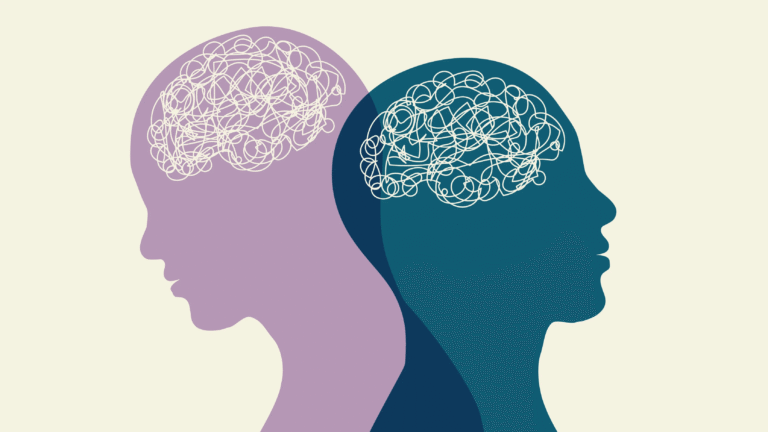In today’s fast-paced world, maintaining mental well-being has become more crucial than ever. As we navigate the complexities of modern life, it’s essential to develop strategies that empower our minds and promote overall wellness. This article explores various approaches to mental health, offering insights and practical tips for nurturing a resilient and balanced mind.
Understanding Mental Well-being
Mental well-being goes beyond the absence of mental illness. It encompasses psychological, emotional, and social well-being, affecting how we act, think, and feel. A healthy mind contributes to our ability to cope with stress, relate to others, and make important decisions.
The Power of Mindfulness
Mindfulness has gained significant attention in recent years, and for good reason. This practice of being present in the moment can have profound effects on mental health.
Benefits of Mindfulness
- Reduced stress and anxiety
- Improved focus and concentration
- Enhanced emotional regulation
- Better sleep quality
Incorporating Mindfulness
Start with short, daily meditation sessions. Practice mindful breathing throughout the day. Engage in mindful activities like walking or eating.
The Role of Physical Health
Physical and mental health are closely interconnected. Taking care of your body can significantly impact your mental well-being.
Exercise
Regular physical activity releases endorphins, reducing stress and improving mood. Aim for at least 30 minutes of moderate exercise most days of the week.
Nutrition
A balanced diet rich in fruits, vegetables, whole grains, and lean proteins can support brain health. Consider incorporating omega-3 fatty acids, known for their mood-boosting properties.
Sleep
Aim for 7-9 hours of quality sleep each night by maintaining regular sleep patterns and creating a calming bedtime routine.
Cultivating Positive Relationships
Strong social connections are vital for mental health. Nurturing positive relationships can provide emotional support and a sense of belonging.
Building Connections
Make time for family and friends. Join clubs or groups aligned with your interests. Volunteer in your community to foster a sense of purpose and connection.
The Impact of Nature
Spending time in nature can have a restorative effect on the mind. Research shows that exposure to natural environments can reduce stress and improve overall well-being.
Connecting with Nature
Take regular walks in parks or natural settings. Practice outdoor activities like gardening or hiking. Bring elements of nature into your living space with plants or natural materials.
Exploring Alternative Approaches
As interest in holistic well-being grows, some individuals are exploring alternative methods for mental health support. While traditional therapy and medication remain valuable tools, some are turning to more unconventional practices. For instance, in certain controlled settings, a psilocybin ceremony has been studied for its potential to provide insights and emotional breakthroughs, although it’s important to note that such practices should only be considered under proper guidance and in legal contexts.
The Power of Creativity
Engaging in creative activities can be a powerful tool for mental well-being. Whether it’s painting, writing, music, or crafting, creative expression can provide an outlet for emotions and a sense of accomplishment.
Incorporating Creativity
Set aside time for creative hobbies. Try new forms of artistic expression. Use creativity as a form of self-expression and stress relief.
Cognitive Strategies for Resilience
Developing cognitive strategies can help build mental resilience and improve overall well-being.
Reframing Negative Thoughts
Practice identifying and challenging negative thought patterns. Replace negative self-talk with more balanced, realistic perspectives.
Gratitude Practice
Regularly reflect on things you’re grateful for. Keep a gratitude journal to reinforce positive thinking.
Goal Setting
Set realistic, achievable goals to create a sense of purpose and direction. Break larger goals into smaller, manageable steps.
The Importance of Self-Care
Self-care is not selfish; it’s essential for maintaining mental health and preventing burnout.
Self-Care Strategies
Establish boundaries in personal and professional life. Make time for activities you enjoy. Practice self-compassion and forgiveness.
Embracing Lifelong Learning
Continuous learning and personal growth can contribute significantly to mental well-being.
Lifelong Learning Approaches
Read books on various topics. Take online courses or attend workshops. Learn a new skill or language.
Managing Digital Wellness
In our increasingly digital world, managing our relationship with technology is crucial for mental health.
Digital Wellness Tips
Set boundaries for device usage. Practice digital detoxes regularly. Be mindful of social media consumption and its impact on your mood.
Seeking Professional Support
While self-help strategies are valuable, it’s important to recognize when professional help is needed.
When to Seek Help
Persistent feelings of sadness or anxiety. Difficulty coping with daily life. Thoughts of self-harm or suicide.
Types of Professional Support
Therapy (individual, group, or family). Psychiatric evaluation and medication management. Support groups for specific mental health concerns.
Conclusion
Empowering your mind for well-being is an ongoing journey that requires attention, effort, and self-compassion. By incorporating a variety of strategies – from mindfulness and physical health to creative expression and cognitive techniques – you can build a robust foundation for mental wellness.
Remember that everyone’s path to mental well-being is unique. What works for one person may not work for another, so it’s important to explore different approaches and find what resonates with you. Be patient with yourself as you implement these strategies, and don’t hesitate to adjust your approach as needed.
Ultimately, prioritizing your mental health is one of the most important investments you can make in yourself. By taking proactive steps to empower your mind, you’re not only enhancing your own quality of life but also positively impacting those around you. Embrace this journey of self-discovery and growth, knowing that each step you take is contributing to a healthier, more resilient you.













